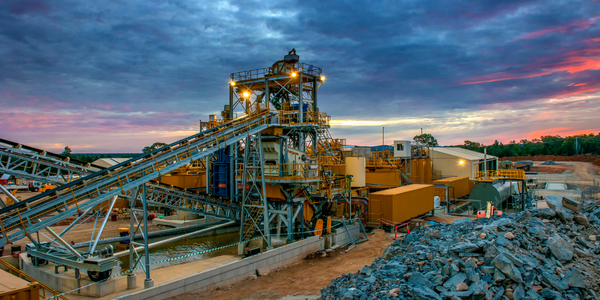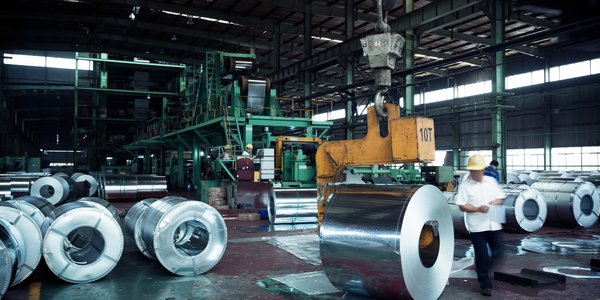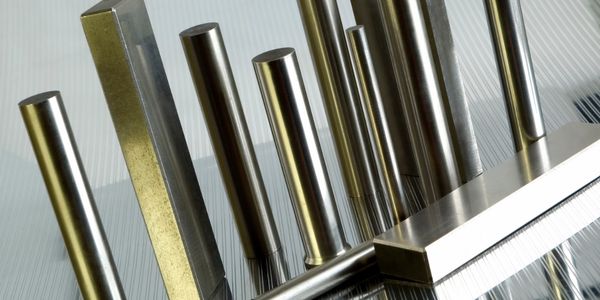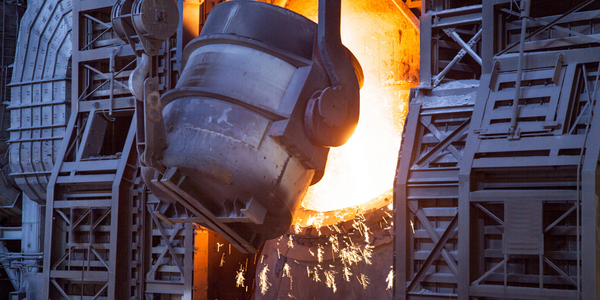Customer Company Size
Large Corporate
Region
- America
Country
- United States
Product
- Aptean Axis ERP
Tech Stack
- ERP Systems
Implementation Scale
- Enterprise-wide Deployment
Impact Metrics
- Customer Satisfaction
- Productivity Improvements
Technology Category
- Functional Applications - Enterprise Resource Planning Systems (ERP)
Applicable Industries
- Metals
Applicable Functions
- Sales & Marketing
- Business Operation
Use Cases
- Manufacturing System Automation
Services
- System Integration
About The Customer
Plymouth Tube Co. (Plymouth) is a global supplier of specialty carbon alloy, nickel alloy, and stainless steel tubing for mechanical, pressure, boiler and hydraulic applications. Family-owned Plymouth is committed to providing quality products and services, with 11 manufacturing plants scattered around the eastern half of the United States. The company has over 800 employees and was founded in 1924. Plymouth Tube Co. is a manufacturer of precision steel tubing.
The Challenge
Plymouth Tube Co. identified the manual nature of its product pricing process as a serious weakness during one of its annual off-site managerial meetings. Each customer service representative (CSR) prepared quotes based on price sheets, knowledge of the markets, the customers and other often undocumented “tribal knowledge.” The process itself was cumbersome, which led to frustrations for both Plymouth and its customers, especially when a back-up CSR was covering for one who was out of the office.
The Solution
Plymouth Tube Co. decided to implement the Axis attribute pricing module for sales order management, an Aptean solution, specifically designed for the metal and wire and cable industries. The team worked diligently with the CSRs to analyze their processes, and soon built a pricing model. An additional benefit to adding the Axis attribute pricing module is that it reinforces company pricing policies on new products as they emerge. The system will now tell them if a table is missing or incomplete on a new product, so they won’t be interrupted in the middle of a quote or quote incorrectly.
Operational Impact

Case Study missing?
Start adding your own!
Register with your work email and create a new case study profile for your business.
Related Case Studies.

Case Study
Goldcorp: Internet of Things Enables the Mine of the Future
Goldcorp is committed to responsible mining practices and maintaining maximum safety for its workers. At the same time, the firm is constantly exploring ways to improve the efficiency of its operations, extend the life of its assets, and control costs. Goldcorp needed technology that can maximize production efficiency by tracking all mining operations, keep employees safe with remote operations and monitoring of hazardous work areas and control production costs through better asset and site management.

Case Study
KSP Steel Decentralized Control Room
While on-site in Pavlodar, Kazakhstan, the DAQRI team of Business Development and Solutions Architecture personnel worked closely with KSP Steel’s production leadership to understand the steel production process, operational challenges, and worker pain points.

Case Study
Bluescope Steel on Path to Digitally Transform Operations and IT
Increasing competition and fluctuations in the construction market prompted BlueScope Steel to look toward digital transformation of its four businesses, including modern core applications and IT infrastructure. BlueScope needed to modernize its infrastructure and adopt new technologies to improve operations and supply chain efficiency while maintaining and updating an aging application portfolio.

Case Study
RobotStudio Case Study: Benteler Automobiltechnik
Benteler has a small pipe business area for which they produce fuel lines and coolant lines made of aluminum for Porsche and other car manufacturers. One of the problems in production was that when Benteler added new products, production had too much downtime.

Case Study
Continuous Casting Machines in a Steel Factory
With a very broad range of applications, steel is an important material and has been developed into the most extensive alloy in the engineering world. Since delivering high quality is absolutely crucial for steel plants, ensuring maximum productivity and the best quality production are the keys to competitiveness in the steel industry. Additionally, working conditions in steel factories are not suitable for workers to stay in for long periods of time, so manufactures usually adopt various machines to complete the steel production processes. However, the precision of these machines is often overestimated and the lack of flexibility also makes supervisors unable to adjust operating procedures. A renowned steel factory in Asia planned to improve its Distributed Control System (DCS) of furnaces as well as addressing the problem of insufficient accuracy. However, most well-known international equipment suppliers can not provide a satisfactory solution and local maintenance because the project needed new technologies to more accurately control equipment operations. By implementing Advantech’s automated monitoring and control solution, steel factories can not only improve the manufacturing processes but can also allow users to add additional functions to the existing system so as to make sure the operation runs at high efficiency.

Case Study
Automated Predicitive Analytics For Steel/Metals Industry
Asset to be monitored: Wire Compactor that produces Steel RebarCustomer Faced The Following Challenges:Dependent upon machine uptime.Pressure cylinders within the compactor fail to control compression and speed causing problems in binding the coil.Equipment failure occurs in the final stage of production causing the entire line to stop, can you say bottleneck?Critical asset unequipped with sensors to produce data.







